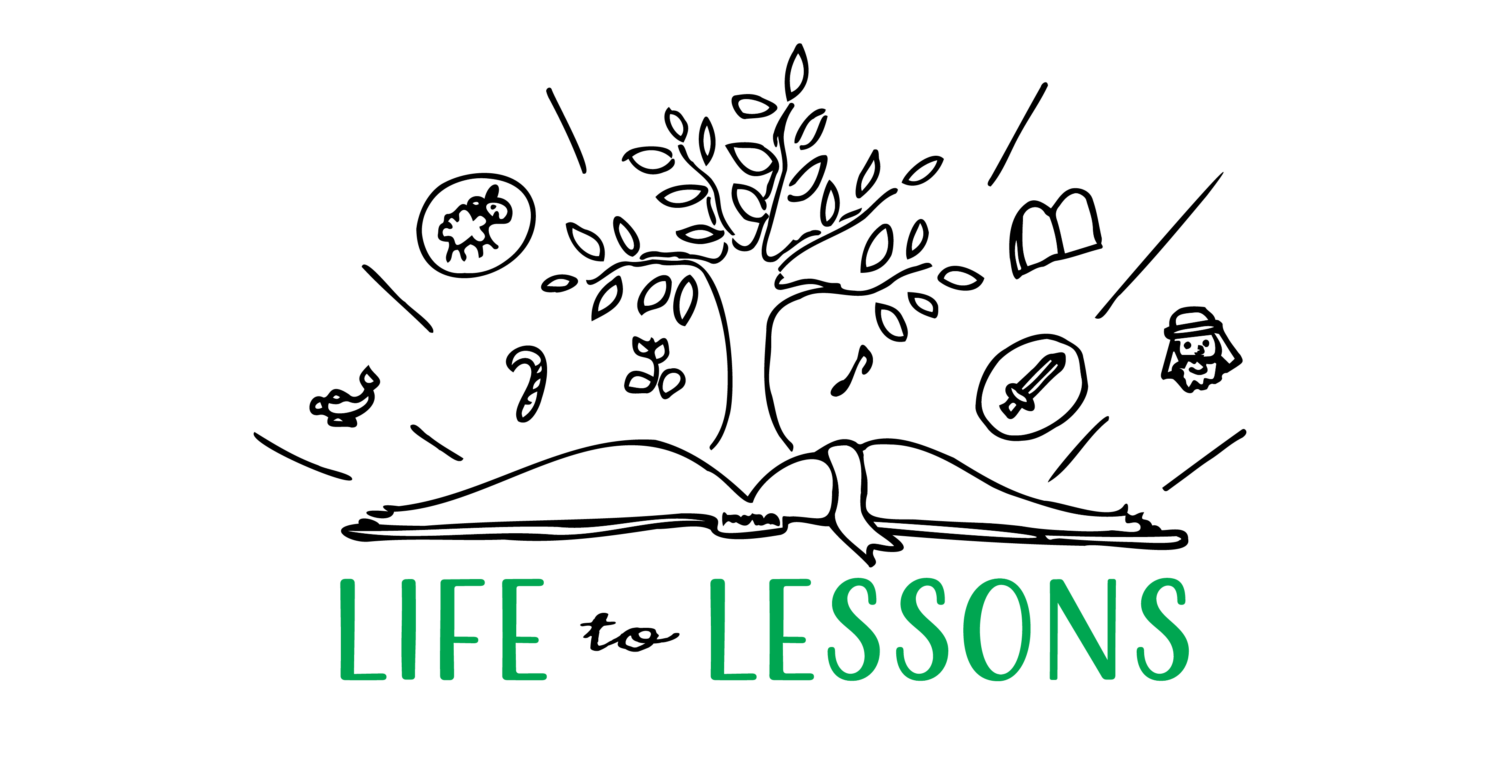Life to Lessons: A Guided Approach to the Children’s Lessons
So, you printed the PDF, you’ve grabbed your kid to sit with you on the couch, you’ve got your Bible in hand, and you’re all set to begin the lesson. So what’s next?
Is this the part where you just start reading from the top of the printed Bible lesson, and begin plowing through the summary, the suggested readings, and the discussion questions, before you end with a quick review of the memory scripture? One brief session each Friday evening should be sufficient, right? Well, not exactly. The Children’s Bible Lessons have the potential to be so much more than a script that is read while your child sits and listens.
Here’s a hint. Don’t just think of the Bible Lessons as “lesson plans”. Lesson plans are detailed, organized scripts for teachers with every question, activity, and topic chosen keeping in mind the needs of the students, the goals of the lesson and the larger unit, and the specific allotment of time. The weekly Children’s Bible Lessons are designed to be different. These lessons are created to assist you, as a parent, as you review the major episodes in the Bible.
The lessons are very flexible and must be tailored specifically for your children. That being said, we want to share with you a general approach of one way the Children’s Lessons can be used. Again, this is not meant to be a script, but more of a guide for you as you plan specific lessons with your children.

1. Begin with the big picture in mind!
Think about your goals as a parent to teach your child about the Bible. Some questions to ask yourself might be…Why do I want to teach my children the Bible? What are some Biblical principles that would help me teach my child about God’s Word? What do I want them to gain from the experience of going through the Children’s Bible Lessons?

2. Make a long-term plan
Now that you have some main goals, determine how you will reach those goals long-term. You will need to answer questions like…When during the week will our family set aside time to go through the lessons? What time, each day, will we devote to Bible lessons? How much time can/should I commit to preparing for each lesson as a parent? How much of the Bible do we want to get through in a year, as a family? Will we do each lesson on a weekly cycle, or will we take more time on each lesson?

3. Build your lesson structure
While there is definitely something to be said for spontaneity and variety in lessons, having an organized layout for each lesson will give you a solid foundation for you to work with and develop to suit the needs of your children. Having structure in lessons is key in teaching children, and you will thank yourself later when your child adopts the lessons as habit. Children love structure as it gives them a comfortable place from where they can develop their mind. Less confusion, more peace…what more could a parent want?

4. Plan each lesson
Don’t get too overwhelmed just yet! When it comes to preparing for each lesson, simplicity is key. It doesn’t have to be a major, time-consuming project every time you sit down to prepare a lesson for your kids. Simply come up with one or two goals for the lesson. Ask yourself, what do I want my child to take away from this lesson? Use each topic overview that we provide to help you! You can choose one or two of the discussion questions, or perhaps pick one of the readings as your lesson focus. Just remember to keep the goal in mind!

5. Add some fun!
The Bible is one of the most exciting, inspiring, adventure-filled pieces of literature in existence. Help bring it alive for your child! Try to read with passion, help your child act out the story, allow them to read aloud in character, or give them opportunities to describe in detail the scenes they are learning. You can also add related activities to each lesson topic such as crafts, songs, games, coloring pages, or other supplemental materials. Choose from our list of recommended activities and supplemental materials, or add your own! Remember, you create the experience for your child, so ask yourself, “What do I want my child to take away from it?”.
The key to teaching your children the Bible is being properly prepared. Keep in mind God’s principles for teaching your children. Here are two to get you started: 1. Teaching is a continuous process (Deuteronomy 6:6-7; 11:19). Teaching God’s way cannot be limited to a few scheduled lesson hours every week. It must be part of daily habits, example, and guidance. 2. Teaching the Bible should teach them to Love God. God is not boring, or impatient, or unenthusiastic about the way He teaches us. The way that parents teach their children the Bible can directly influence how children understand God. (Deuteronomy 11:1, 22-23). How does God want us to teach our children about Him? What is the impression we give our children about God when we talk about Him?


